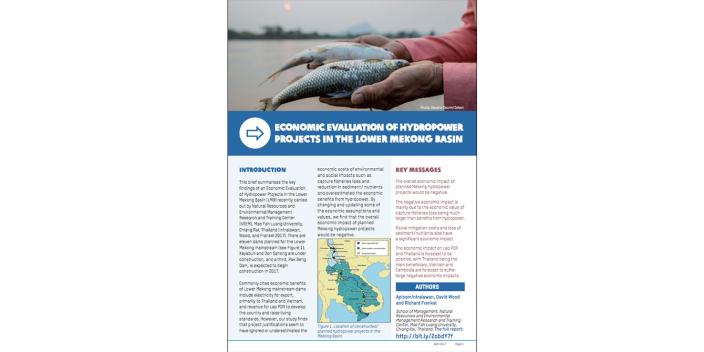This Brief prepared by Oxfam, summarises the key findings of an economic evaluation of hydropower projects in the Lower Mekong Basin (LMB), that was recently carried out by Thailand's Mae Fah Luang University's Natural Resources and Environmental Management Research and Training Center (NREM). There are eleven dams planned for the Lower Mekong mainstream. Xayaburi and Don Sahong are under construction, and a third, Pak Beng Dam, is expected to begin construction in 2017.
Commonly cited economic benefits of Lower Mekong mainstream dams include electricity for export, primarily to Thailand and Vietnam, and revenue for Lao PDR to develop the country and raise living standards. However, the study finds that project justifications seem to have ignored or underestimated the economic costs of environmental and social impacts such as capture fisheries loss and reduction in sediment/ nutrients and overestimated the economic benefits from hydropower. By changing and updating some of the economic assumptions and values, we find that the overall economic impact of planned Mekong hydropower projects would be negative.
The negative economic impact is mainly due to the economic value of capture fisheries loss being much larger than benefits from hydropower. Social mitigation costs and loss of sediment/nutrients also have a significant economic impact. The economic impact on Lao PDR and Thailand is forecast to be positive, with Thailand being the main beneficiary. Vietnam and Cambodia are forecasted to suffer large negative economic impacts.


